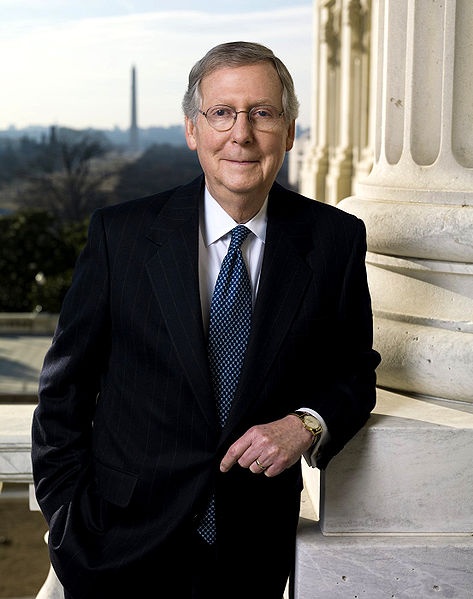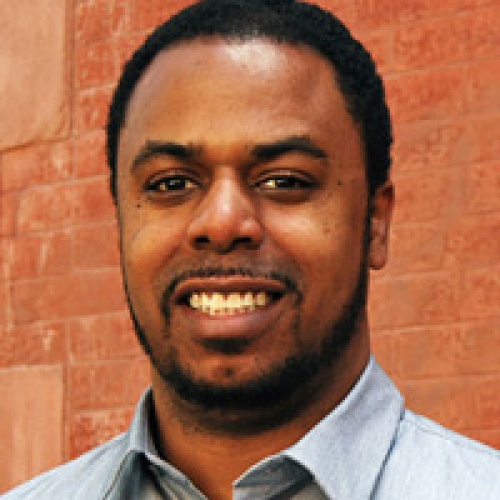McCutcheon, McConnell and the threat of corruption

In the McCutcheon v. FEC case about campaign contribution limits that will be heard tomorrow by the U.S. Supreme Court, the primary concern for those troubled by the increasing influence of money in politics is corruption. But those who support plaintiff Shaun McCutcheon are also troubled by money’s influence, though for different reasons -- they don’t think it’s increasing enough.
In tomorrow’s oral arguments before the court, the justices will deliberate whether the biennial limits placed on individual donors to candidates for office, political parties and political action committees in federal elections are unconstitutional. McCutcheon, an Alabama businessman, believes that the $123,200 aggregate federal limit on such donations limits his freedom of speech.
The court will also hear from Sen. Mitch McConnell (R-Ky). Though he's not a party in the McCutcheon case, the court is giving the Senate minority leader the opportunity to present his own even more extreme views -- that campaign contribution limits in general are a burden to free speech and that the court should overturn the key legal principle that the "standard of review," or what the government has to show to justify regulation, is different for limits on campaign contributions than limits on campaign expenditures.
If the Supreme Court were to side with McConnell, says Trevor Potter of The Campaign Legal Center, "the decision would encourage legal challenges to all limits in the future, and make them much harder to defend." Potter says that such a decision would be “more dangerous to American democracy than the recent Citizens United decision.”
Meanwhile, if McCutcheon prevails, billionaires could essentially make direct deposits to candidates.
This would come in handy right now for McConnell, whose Senate seat is up for grabs in 2014. He is facing a primary challenge from Matt Bevin, a tea party conservative backed by tea party magnates. If McConnell survives the primary, will face Kentucky Secretary of State Alison Grimes in the general. There are a number of wealthy donors who are backing McConnell -- or at least backing the super PAC that's backing him.
According to the Open Secrets blog, there are several wealthy donors who have contributed large amounts to the Kentuckians for Strong Leadership, a pro-McConnell super PAC. Among them are the deceased Texan Bob Perry, who gave $100,000 before he passed away, and Texas hedge fund manager John W. Childs, who gave the group $250,000 this year.
But if the Supreme Court rules in favor of McCutcheon, people like Perry and Childs could skip the super PAC altogether and give millions directly to McConnell and his Republican Party. University of California Irvine elections law professor Rick Hasen painted a hypothetical scenario about this last week in Slate:
"A member of Congress, for example, would be able ask for a single $3.6 million contribution (through a 'joint fundraising committee' -- essentially an arrangement to take a check to be disbursed to more than one campaign) to distribute to all federal congressional candidates and to national and local political parties. He or she could keep from that check only $5,200 ($2,600 for the primary and another $2,600 for the general election), but the parties and PACs could then use the passed-on funds to run ads attacking his or her opponent."
Operating essentially as a big bundler, the member of Congress with greater access to wealthy donors would have greater influence over other members with less access, observed Hasen, but "the $3.6 million donor would have the most influence of all."
How would further opening the door to big money in U.S. politics affect Americans' perception of their government? Let's look overseas for some clues.
In the United Kingdom, where there are no limits on how much individuals and corporations can donate to elections, 90 percent of the British public believe that their government is “run by a few big entities acting in their own interest.” Or consider Yemen, which imposes no limits on the amount a donor can contribute to a political party or candidate and is one of the world's top hotspots for government corruption, according to Transparency International’s 2013 Global Corruption Barometer.
“Our constitution’s authors did not envision a government of corporations and the wealthy -- they envisioned a government of the people, "says Marge Baker, executive vice president of People for the American Way. "This case threatens the very foundations of that system."
